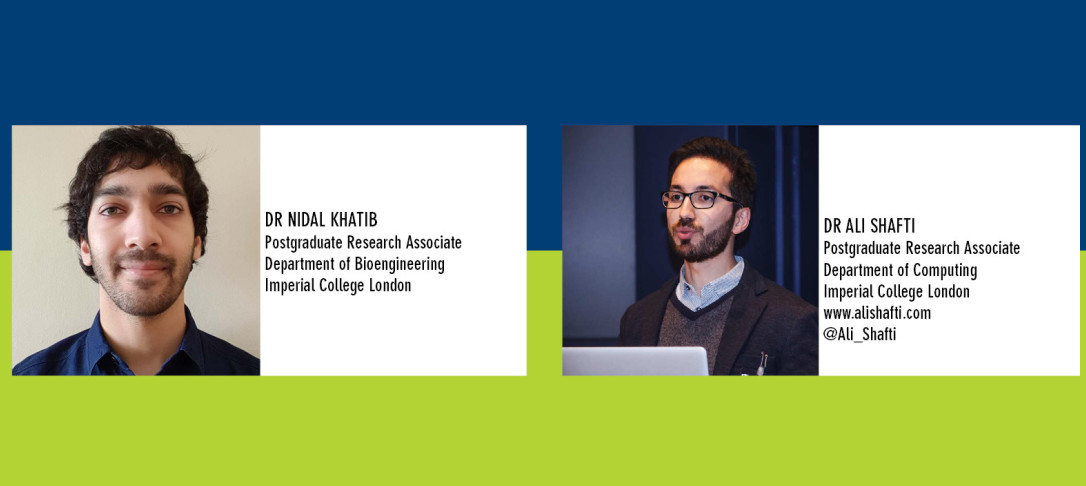
Catch up on this Bioengineering Department Seminar on our YouTube channel: Click here to watch
DR NIDAL KHATIB
Talk title: Mechanobiology and biomechanics of skeletal development
Talk abstract: Biomechanical stimuli arising from foetal movements during gestation are crucial for guiding the healthy formation of long bones and synovial joints (such as the knee) during embryonic development. This is evident by a range of musculoskeletal conditions, such as arthrogryposis and developmental dysplasia of the hip, which are associated with reduced foetal movements. However, our knowledge of how mechanical stimulation, as well as the type and quantity of stimulation, directs cartilage and bone growth during development is very limited. Investigating this question is relevant to the development of new tissue engineering strategies, such as in the ‘developmental engineering’ paradigm, which strives to recapitulate in vivo cartilage and bone developmental processes as a means to produce engineered tissues. By employing in vitro experimental models of chick and mouse embryo hindlimb development using a mechanostimulation bioreactor to induce foetal movement, we explore the vital link between mechanics and biology in skeletogenesis
Biography: Dr Nidal Khatib is a PDRA in the Developmental Biomechanics group at the Department of Bioengineering at Imperial College London, investigating mechanobiological pathways in skeletal development. He received his bachelor’s degree in Biomedical Sciences from the University of Reading, then went on to study for a masters in Nanotechnology and Regenerative Medicine at University College London. Prior to joining Imperial, he completed his PhD in Biomedical Engineering at Cardiff University, where he explored mechanobiological pathways of early osteoarthritis development in patients with knee injury.
DR ALI SHAFTI:
Talk title: Explainable Robotics through Human Motor Control
Talk abstract: Recent progress in robotics and AI has led us ever closer in physical contact with robots. We now have robots performing tasks close to and in collaboration with or in assistance of humans; be this in medical robots, self-driving cars, robot-assisted care or robots in collaborative industrial settings. In such settings, we have robot control directly facing human motor control. In my talk, I will be showing our work on physical human-robot interaction in assistive robotics to restore reaching and grasping for paralysed users, as well as on collaborative robots, where we show an AI-driven robot and a human developing joint policies for a non-trivial collaborative motor task, purely through real-world interaction. I will demonstrate the critical importance of achieving explainability in physical human-robot interaction. Explainability and ultimately trust in AI-driven robots will set fundamental limits to how robot-friendly our futures will be, particularly when physical contact is concerned. I will describe how we can achieve this by drawing inspiration from human motor control, creating a counterpart, hierarchical and interpretable robot control architecture that can adapt to new physical tasks and new interacting humans over time.
Biography: Dr. Ali Shafti is a Research Associate in the Brain and Behaviour Lab at the Department of Computing & Department of Bioengineering, Imperial College London. He studies the physical collaboration and interaction between humans and robots. He looks into making these intuitive and natural for increased synergy, and augmented capabilities on both sides, leading to explainable and productive human robot interaction. To this end, he implements machine intelligence in the context of robotics, while conserving the role of human intelligence as an essential part of the action/perception loop and the interaction. He has a PhD in Robotics from King’s College London, where he focused on human in-the-loop physical human-robot interaction.


